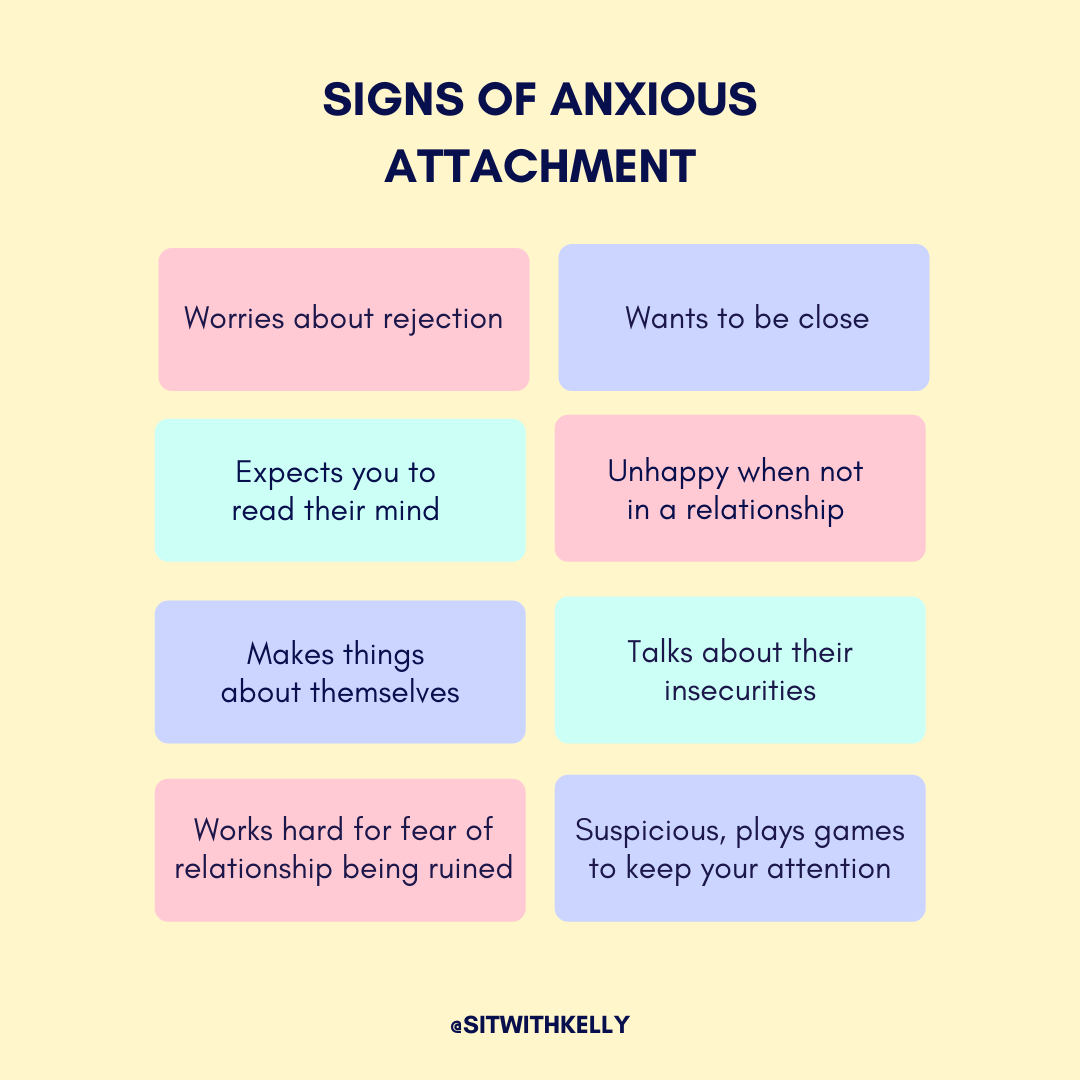How to Navigate Dating with An Anxious Attachment Style
It's tough navigating dating and relationships when you have an anxious attachment style. It's impossible to relax when you're always worried about what the other person is thinking or doing. When you're so focused on waiting for the other person to give you the reassurance you seek, you can't enjoy the experience and be present for it.
Not only is all this exhausting for you, but it's tiring for the other person - whether it's a partner or someone you're seeing.
While your attachment style doesn't explain everything about your dating life, it's likely at the root of the problems you experience time and time again. When you rely on another person to meet your emotional needs or solve your problems, but they don't (because they can't), it not only interferes with each relationship you have.
When you continuously set yourself up to be let down, it can alter your entire dating perspective. You might find yourself acting irrationally or being overly emotional more often than not, believing that others are heartless or untrustworthy.
The good news is, there's much more dating than the whirlwind of emotions you're experiencing. One day you can know what it's like to not only have an emotionally available and secure partner but to be one. It starts with understanding and learning to manage your anxious attachment style.
The following tips won't only help you navigate your dating life with greater ease and fulfillment but work on becoming more emotionally aware and secure in the process.
Get clear on your needs and communicate them.
We all need intimacy, security, and reassurance in relationships — this doesn't make you "needy." Problems arise when you don't know your needs, or worse, when you expect the other person to read your mind. This is especially difficult in dating when it's uncomfortable to be upfront about what we want.
Start by getting clear on your needs and being willing to share them with the other person (as scary as that may sound). If you need more verbal reassurance or physical affection, let them know. This doesn't mean demanding that they give it to you, but simply expressing what would make you feel more comfortable in the relationship.
Practice being emotionally independent.
Emotional independence doesn't mean avoiding emotional support from others. Instead, it's about feeling capable of handling your own emotions and not relying on another person to make you feel better.
Some ways to practice being emotionally independent include:
Identifying and healthily expressing your emotions.
Learning how to soothe yourself when you're feeling upset or anxious.
Setting boundaries with others.
Spending time with friends and family who support and love you.
Doing things that make you happy, regardless of whether or not someone else is doing them with you.
Take Responsibility for Your Actions and Unhealthy Responses
Whether you're known to triple text your partner or jump to conclusions, acknowledge when you act out in hurtful or unhealthy ways. No one is perfect, but it's important to be honest with yourself (and your partner), taking responsibility for your actions.
This doesn't mean beating yourself up or trying to change overnight. Just be mindful of your triggers and the thoughts and actions that contribute to anxiety or insecurity in the relationship. Only once you do this can you work on changing them, little by little.
The ability to express yourself and your love outwardly sometimes means working on your inner self. More specifically, your inner child — because you present dating life circles back to the nature of your attachment to your parents. Therapy is a great way to start understanding your anxious attachment style, your triggers, and where it started.
Believe it or not, dating can be fun! It doesn't have to be a constant battle with your thoughts and doubts over whether you're worthy of love. Your love life doesn't have to be a reenactment of past painful memories where you felt isolated or unloved. Therapy can help you address your problematic thought patterns and communication habits and build your self-worth.
If you're ready to take a chance on someone else, you must be willing to first take a chance on yourself. It takes time to build trust and emotional intimacy. It takes time to reparent your inner child. So above all things, be patient with the process and trust that your dating world will get better with time.
Remember: this post is for informational purposes only and may not be the best fit for you and your personal situation. It shall not be construed as legal, financial, or medical advice. The information and education provided here is not intended or implied to supplement or replace professional advice of your own attorney, accountant, physician, or financial advisor. Always check with your own physician, attorney, financial advisor, accountant, or other business or medical professional before trying or implementing any information read here.

